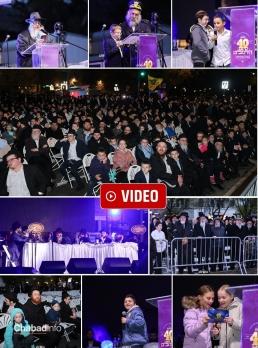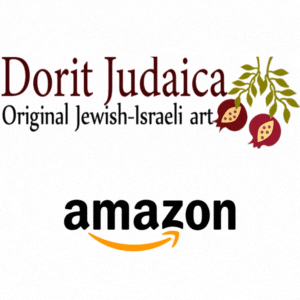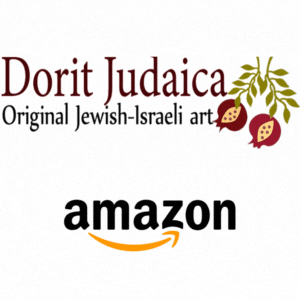Breaking News: Didan Notzach For Kosher Bris
A New York City law requiring parental consent and acknowledgment of the health risks of “bris milah,” a ritual circumcision practice in which a mohel orally draws blood from the wound, is subject to “strict scrutiny” analysis, a federal appellate court held Friday ● Full Story, Statement of Plaintiffs
By John Caher / New York Law Journal
A New York City law requiring parental consent and acknowledgment of the health risks of “bris milah,” a ritual circumcision practice in which a mohel orally draws blood from the wound, is subject to “strict scrutiny” analysis, a federal appellate court held Friday.
The U.S. Court of Appeals for the Second Circuit sent the controversial case back to Southern District Judge Naomi Reice Buchwald, who last year refused to put the law on hold while adversaries debate its constitutionality.
In a unanimous opinion, the Second Circuit said the law is “neither neutral nor generally applicable,” and therefore is subjected to heightened scrutiny under the Free Exercise Clause.
“The regulation is not neutral because it purposefully and exclusively targets a religious practice for special burdens,” Judge Debra Ann Livingston (See Profile) wrote for the three-judge panel in Central Rabbinical Congress v. New York City Department of Health & Mental Hygiene, 13-107-cv.
Judges Raymond Lohier and Susan Carney joined the decision.
The case centers on a provision in the New York City Health Code, §181.21, which requires that a parent of a child undergoing a “metzitzah b’peh,” or MBP, sign a consent form with the admonition: “The New York City Department of Health and Mental Hygiene advises parents that direct oral suction should not be performed.”
New York City began requiring the consent out of concern that the ritual, in which a mohel orally cleanses the wound caused by a circumcision, exposes children to the herpes simplex virus. Most people carry the virus, which poses little risk to adults but can be life-threatening to infants whose immune system has not fully developed. There have been numerous instances in which infants allegedly were infected with the virus through an MBP ritual.
Several organizations, including the Central Rabbinical Congress of the United States & Canada and a number of rabbis, challenged the regulation as an unconstitutional infringement of their right to the free exercise of religion. They also argued that the city, by requiring specific language on the alleged dangers of MBP, unconstitutionally compelled speech in violation of the First Amendment.
Last year, Buchwald issued a 93-page decision in which she struggled to balance fundamental religious beliefs with legitimate public health concerns (NYLJ, Jan. 14, 2013). Buchwald said the law is neutral and does not unconstitutionally compel speech, and therefore is subject to a relatively low “rational basis” rather than “strict scrutiny” analysis. On that standard, Buchwald denied the plaintiffs’ motion for a summary judgment to stay enforcement of the provision while the constitutional issues are litigated.
The Second Circuit, in a 34-page response, vacated Buchwald’s order and remanded with instructions to reconsider the motion, but this time from a more stringent strict scrutiny perspective.
Under the strict scrutiny test, a law must “be justified by a compelling governmental interest and … be narrowly tailored to advance that interest.” In contrast, to survive rational basis review, the law in question is presumed valid and, so long as it is “rationally related to a legitimate state interest,” must be upheld by the courts.
Here, Livingston said, the regulation targets a specific religious practice rather than a generalized public health issue and, consequently, must be evaluated under a more stringent standard.
“Acknowledging the weighty interests at stake in this litigation the plaintiffs’ in the free exercise of their faith and the department’s in the health of newborns and in informed parental consent concerning risks these newborns face, we express no view as to whether plaintiffs have satisfied this standard, believing that careful adjudication will benefit in the first instance from the district court’s comprehensive analysis,” Livingston wrote.
The court instructed Buchwald to continue with discovery, while holding an evidentiary hearing on the motion for an injunction.
“The district court may also consider the advisability, in the interests of judicial economy, of consolidating this hearing with the trial on the merits,” Livingston wrote, adding that any further appeal will be assigned to the same appellate panel. “We are confident that further review by this court will benefit from the district court’s analysis in the first instance.”
The case presents a classic tension between secular and Jewish law.
Records show that certain Jewish sects have faithfully adhered to the MBP rituals for thousands of years, believing they are dictated by the covenant between God and Abraham. During the ritual, the mohel, after cleansing his mouth, draws blood from the wound through direct oral suction.
New York City health officials, contending that there have been a number of instances in which infants were infected with the herpes virus during an MBP, at first pursued various educational measures. But those efforts were only moderately successful, and in 2012 the Department of Health and Mental Hygiene proposed §181.21, which was unanimously adopted by the Board of Health on Sept. 13, 2012 after a public comment period.
The regulation requires a signed consent with the state saying: “I understand that direct oral suction will be performed on my child and that the New York City Department of Health and Mental Hygiene advises parents that direct oral suction should not be performed because it exposes an infant to the risk of transmission of herpes simplex virus infection, which may result in brain damage or death.”
Although the regulation does not specifically refer to metzitzah b’peh, the city acknowledges it was designed to regulate MBP.
“The department has asserted interests that are substantial and may prove, on analysis, to be compelling,” Livingston wrote. “And the means it has chosen to address these interests (means that fall short of outright prohibition of MBP and that may further the goal of informed parental consent) may be appropriately tailored, albeit intrusive on a longstanding religious ritual. Mindful of the serious interests at stake on both sides, we express no view as to whether the plaintiffs have borne their burden of establishing a likelihood of success on the merits.”
The appeal was argued Dec. 3 by Shay Dvoretzky, a Washington partner at Jones Day, for the plaintiffs.
In a statement, the plaintiffs said the ruling is “a great victory—not only for those whose religious rights are directly infringed by the Bloomberg Administration’s regulation of metzitzah b’peh, but for all Americans who cherish religious freedom.”
Assistant Corporation Counsel Mordecai Newman represented the city defendants. There was no immediate response from the city.
===
Statement of Plaintiffs:
The plaintiff organizations in the federal legal challenge against the New York City Health Department’s regulation governing metzitzah b’peh issued the following statement upon the US Court of Appeals’ ruling earlier today reversing a federal district court’s upholding of the regulation.
Today’s ruling is a great victory — not only for those whose religious rights are directly infringed by the Bloomberg Administration’s regulation of metzitzah b’peh, but for all Americans who cherish religious freedom.
The Court of Appeals correctly recognized that the regulation we have challenged “purposely and exclusively targets a religious practice for special burdens”; and that it “pertains to religious conduct associated with a small percentage of HSV infection cases among infants, while leaving secular conduct associated with a larger percentage of such infection unaddressed.” Under circumstances like these, where a religious practice is singled out for special regulation, the regulation must be subject to “strict scrutiny.” The Court of Appeals has thus reaffirmed that the First Amendment’s guaranty of a person’s right to free exercise of religion is entitled to the very highest level of constitutional protection.
The plaintiffs are deeply gratified by today’s ruling, and are hopeful that the regulation will either be withdrawn at this time or declared unconstitutional in any further court proceedings. We will continue to do all in our power to ensure that mohalim continue to adhere to the highest standards of safety and hygiene in carrying out their religious mission, and we reiterate our longstanding readiness to work together with health officials to protect our children’s health while fully respecting and accommodating our religious practice.
We thank our lawyers, the Jones Day law firm, for the wonderful job they have done in advocating our constitutional freedoms; and we express our appreciation to the two groups who submitted amicus curiae briefs in support of our legal position: the Becket Fund for Religious Liberty and Alliance Defending Freedom.
465
Join ChabadInfo's News Roundup and alerts for the HOTTEST Chabad news and updates!










































